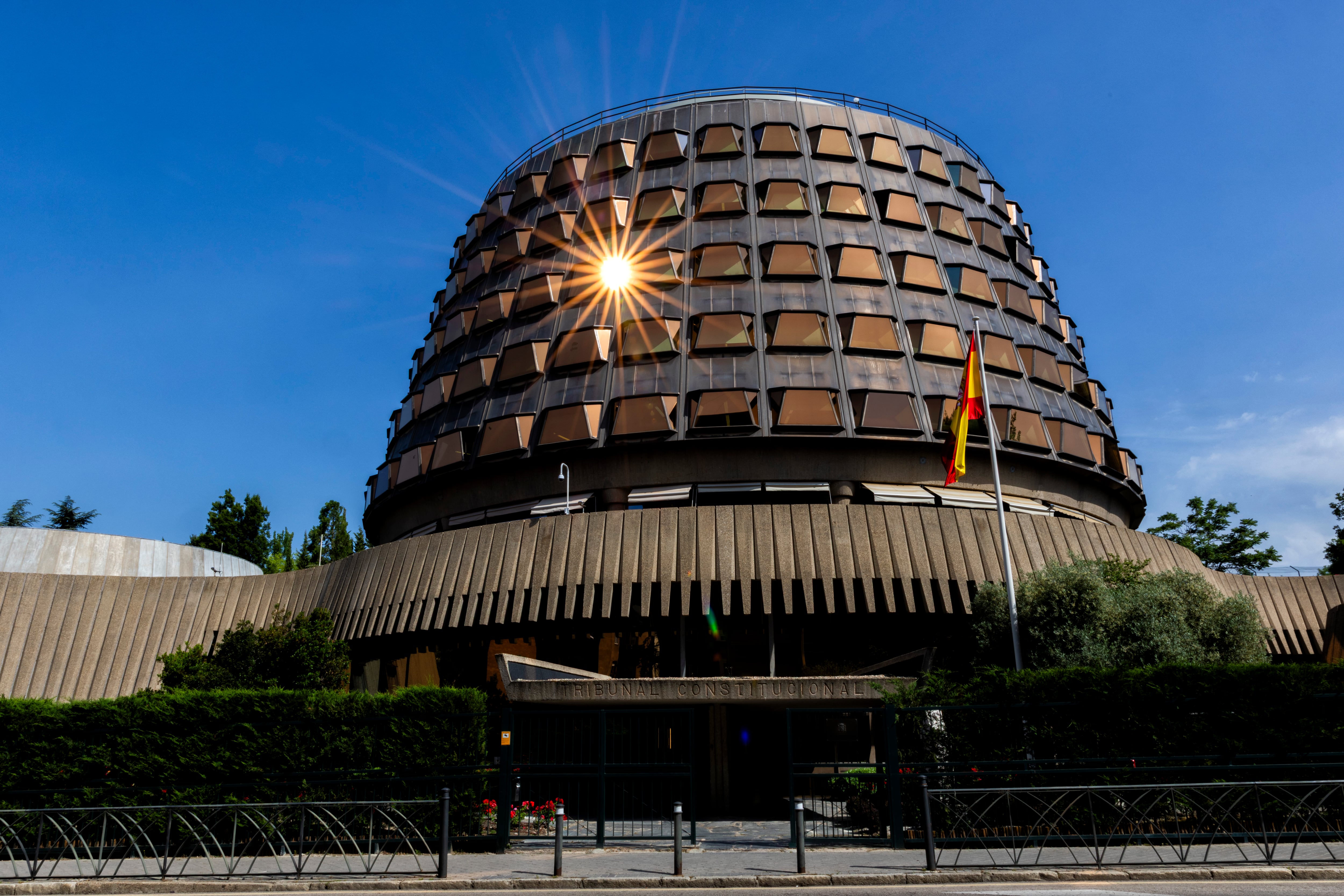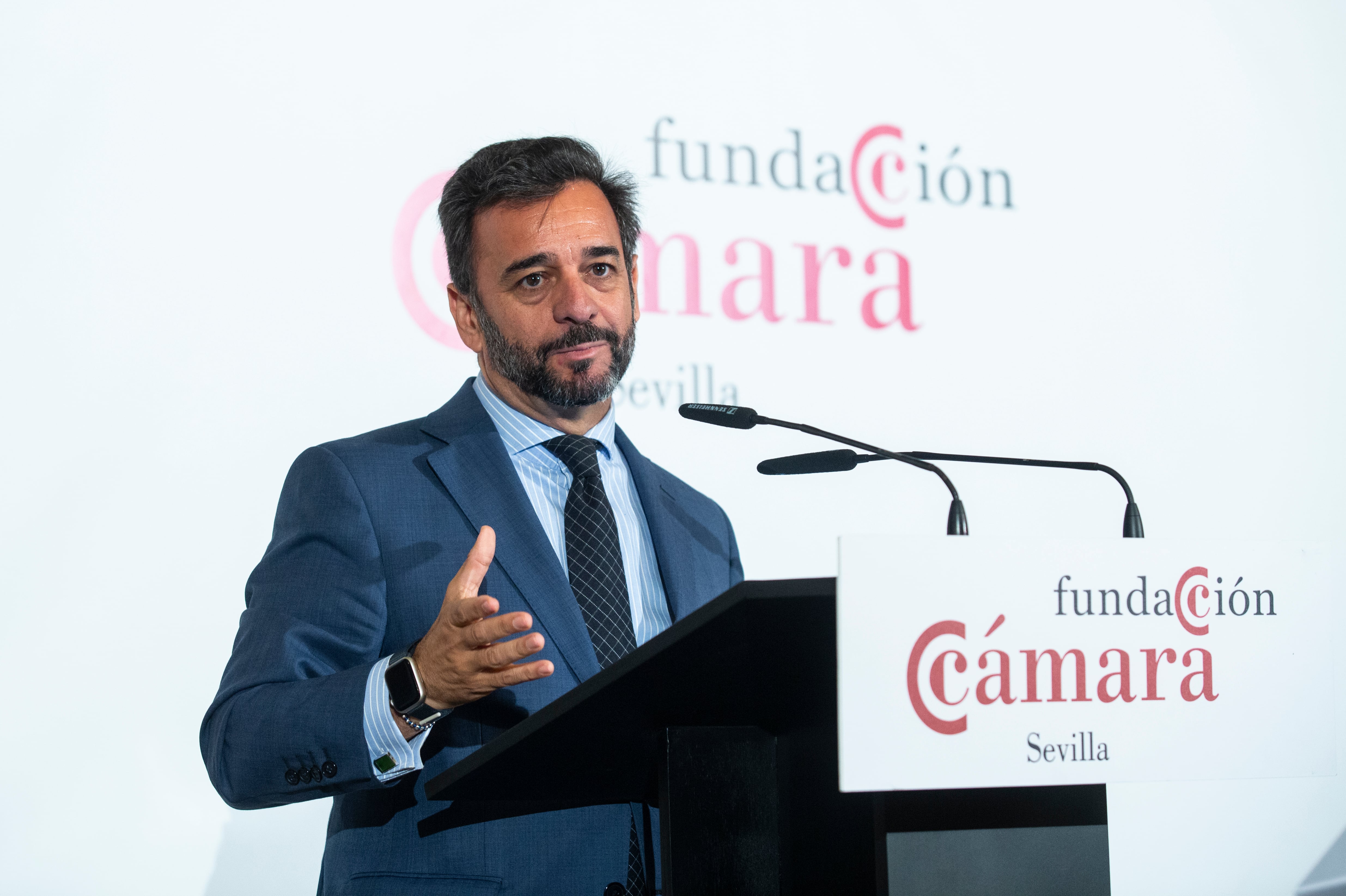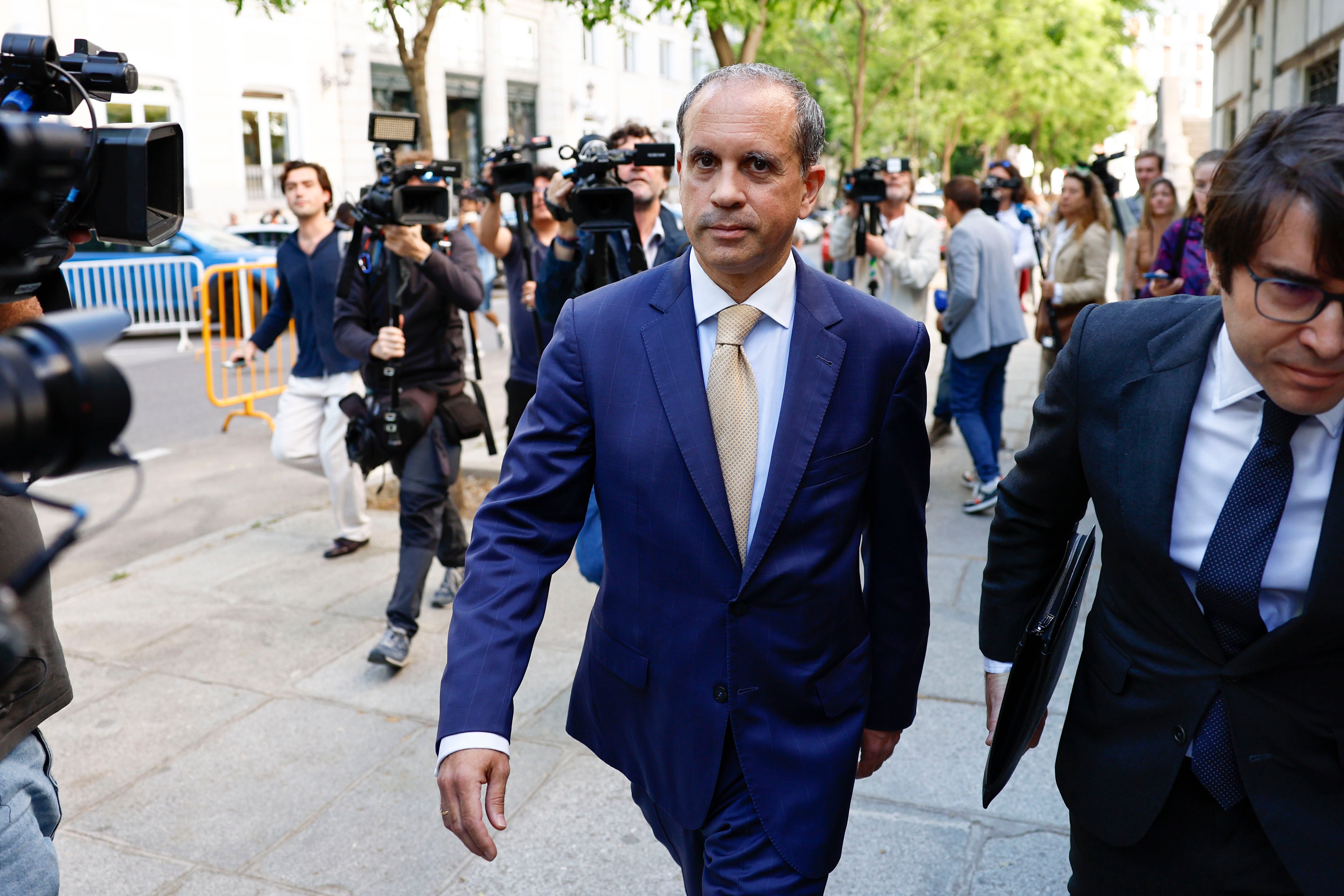The constitutional keys on amnesty: « It does not respond to whim » and pursues « improve coexistence » | Spain

He Constitutional Court Judgment Project Regarding the amnesty law, it maintains that this rule is provided with respect to the objective pursued, that of “overcoming, as a objective of general interest, the social and political tensions generated with the so -called independence process in Catalonia”. Thus excludes the alleged arbitrariness of the law, which pursues « allevia » the effects of Procesand « get greater citizen peace. » The Guarantees Body also highlights that « even when you can disagree » from the amnesty, « there is no doubt that it does not respond to whim or mere voluntarism, seeking an improvement in coexistence and social cohesion. » The text does not enter the exclusion of the crime of embezzlement of the scope of the law, agreed by the Supreme Court. That will continue to delay the possible return of Carles Puigdemont to Spain, unless the Constitutional grant him Amparo when he resolves his appeal against the interpretation that the Supreme has made of the enrichment that the Proces He supposed for his drivers (to the extent that he was not paid with his money and heritage, but with public funds).
The sentence proposal – 191 pages – addresses the following essential points.
Amnesty is not arbitrary
The Constitutional estimates that the political pacts to which the impulse given by the government can respond to the amnesty law They lack relevance for the trial which corresponds to the guarantee body, that you are able to examine the lace of the norm with the Constitution. This is stated in the legal foundations of the sentence project that will begin to be examined by the Court on the 10th. “The recurring – explains the ruling – expose with reiteration that, beyond the words of the Organic Law of Amnesty (Loa), this is the result of simple arbitrariness as soon as it obeys a pure political transaction, among a candidate that needs support for investigations and who committed crimes and now get oblivion. ” To which the Constitutional responds that his own doctrine « makes such allegation cannot prosper, and this without a thorough analysis of all possible motivations of the norm and of all its possible consequences. » It is added that « the legislator’s intentions, his political strategy or his ultimate purpose do not constitute, as is evident, object of our control. »
The sentence project – of which the vice president of the Court, Immaculate Montalbán, in front of a team of lawyers of the court – has been speaker – explains that the mere reading of the preamble of the law leads to conclude “that it cannot be seen that the loa lacks all reasonable justification”. He adds that even when he can disagree with her, there is no doubt that « he does not respond to whim or mere voluntarism, seeking an improvement in coexistence and social cohesion, as well as an integration of the various political sensibilities, to overcome, as a objective of general interest, the social and political tensions generated with the so -called independence process in Catalonia. » The text estimates that the explanation of the law « exists and is reasonable », and can « enlarge with a policy already embodied in previous executive and legislative manifestations, tending to alleviate the effects of the merited process and to achieve greater citizen peace. »
The Constitution does not prohibit amnesty
The appellants argue that amnesty is not constitutional because it is not regulated and is not even mentioned in the fundamental law. There are two sentences, from 83 and 86, but the PP understands that “they allude to norms approved before the entry into force of the Constitution”, since they have as its object only the amnesties agreed in the Royal Decree Law of 1976 and in the Law of 1977. The Constitutional responds to this approach that “the legislator can do everything that the Constitution does not prohibit explicitly or implicitly”. And he adds that « respecting this limit, no content can be considered exempt from the possibility that Parliament attracts it towards itself. » The ruling also emphasizes that amnesty must necessarily be adopted by the General Courts, which differentiates it from the pardons.
It is also stated that « from the fact that during the parliamentary works two amendments were rejected that expressly alluded to the amnesty it should not be deduced that the Constitution prohibits it. » And it is added that the decision of the Constitutional Commission not to constitutionalize the amnesty and reject therefore the amendments related to this institution « can only mean that the Constitution wants to remain silent about it », so that « constitutional silence, by itself, does not equal the prohibition of an institution. » Understanding it in another way would imply « the violation of the democratic principle, the backbone of our constitutional system. » Consequently, « the interpretation held by the plaintiffs is incompatible with the idea of open constitution, which is inherent in the democratic state and political pluralism. »
The division of powers is not violated
The Constitutional emphasizes that « in a system like ours, Parliament, by virtue of the democratic principle, has a preeminent position. » And it specifies that the judge’s function is to judge and execute the judgment and that this function must be carried out with full submission to the Constitution and to the legal system or, in particular, « to the empire of the law. » Therefore, judicial independence is based on « guaranteeing a single agency: that of the judge regarding the law. » It is the legislator who defines the scope and conditions of the jurisdictional exercise, so that « judicial exclusivity coexists (…) with the legislative power of process configuration. »
It is the legislator who is concerned to configure the punitive policy and determine what facts they must be considered punishable, « as well as the exceptions that such forecasts may have. » The granting of an amnesty, understanding this institution in the terms in which it has just indicated, « does not mean or execute the judged. » In summary, the legislator can “grant an amnesty, understanding by such that rule that extinguishes the responsibilities of a punitive or repressive nature derived from the commission of illegal acts only Pro praeterite (limited to the past), because amnestied behaviors remain punishable pro future ”.
The purpose of channeling « the political conflict »
The PP argued in its appeal that Amnesty’s law does not respond to an « ideal of justice », but to the need for the president of the Government. The Court explains that amnesty must have as a budget an « exceptional » situation, because it is configured as an extraordinary mechanism aimed at « mitigating the severity inherent in punitive law in exceptional circumstances. » Among these, humanitarian reasons, « national reconciliation » processes or specific needs derived from « political or social events that require extraordinary responses to the legal system » could be found. It is about attending « extraordinary situation that the legal system cannot resolve with ordinary instruments. » And it is up to the legislator to appreciate the circumstances that justify the granting of the amnesty « without the Constitutional Court being able to supplant it in this task », since what are the reasons or intentions of those who promoted the approval of this Organic Law is « a matter of the legal. » The Court has always ruled out those arguments and rejected to enter the merit of political judgments, intentions and strategies, because « the legal-political context is not ignored, but only the statement and content of the contested provisions is attended. »
The Court considers that the amnesty law “is limited to evaluating the presence of a public interest that can justify, for the beneficial effects for peaceful and democratic coexistence attributed to it, a political decision to renounce the State to the exercise of its Ius puniendi (right to punish) in an exceptional context. « Hence Illicit in the context of the independence process can be considered an ideal means to eliminate – or at least reduce – through an act of generosity of the State, a particular focus of social confrontation. ”
The warnings to the law
The ruling declares unconstitutional that amnesty includes acts related to the Proces initiated before November 13, 2023 « although its execution ends after that date. » The Court considers that « it cannot be rationally explained that some citizens receive from the legislator an unusual authorization to continue their criminal activities in the future, in contrast to the rest of the citizens, who must hold their future actions to the current criminal regulations. » Another objection refers to the fact that the law does not include in the amnesty behaviors contrary to the independence process, with crimes of disobedience or public disorders. But the precept is not annulled, but should extend its application to this type of assumptions.







